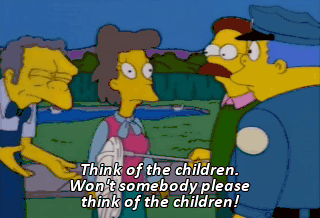Voost Kain
Banned
Sam Haberern, 20, was playing Call of Duty on Xbox at his family's house in Connecticut, and he was on a roll. After several dozen high-scoring rounds, other gamers started to take notice. He began receiving invites from players asking him to play with them. He accepted one and joined in the group's online conversation through his headset.
"It was great," said Haberern in an interview with The Washington Post. "I was talking [trash], they were talking [trash]," he said, adding that such antics are typical and understood to be part of the culture.
Then, Haberern said, the tone of the conversation shifted dramatically. The other gamers started asking him whether he had ever testified in court or murdered anyone.
"They said they were from Maryland and that they were going to come and kill me," he said.
By then it was 3 a.m., and Haberern decided to quit. One of the gamers in the party then sent him a message via Xbox Live. It contained his home address. Next his house phone rang, then his mother's cellphone. A message appeared on his TV screen from one of the party members — it was asking why he didn't answer.
"I felt almost unsafe in my own home, which is not a feeling I like to get from playing Xbox Live," he said.
Haberern contacted Microsoft, which makes Xbox, via its website and reported what happened. Unsatisfied with that process, he then typed a Reddit post, which would go viral, asking what recourse was available to him. The varied and ultimately unsatisfying answers centered on a common theme: There was no good solution.
While game publishers, console makers, online voice-chat applications and even the FBI are aware of these issues and working to confront them, complications stemming from modern technology and gaming practices, freedom of speech concerns, and a lack of chargeable offenses on the legal side make toxic elements a challenge to extinguish.
As a result, and with more and more attention paid to the rapidly growing gaming and esports industry, news cycles are more frequently dotted with incidents like that of Anthony Gene Thomas, 41, of Broward County, Fla., who was arrested on Jan. 20 and faces 22 counts of child pornography, unlawful sex with a minor and other related charges after allegedly using the game Fortnite to solicit sexual encounters with underage players. Authorities in Florida say there may be up to 20 victims, according to local reports.
Vox-owned site the Verge recently compiled multiple accounts of players who claimed to be harassed by others reenacting slavery-era behavior by targeting, rounding up and killing black characters in the massively popular and critically acclaimed game "Red Dead Redemption 2," which takes place at the start of the 20th century. A November story by NPR also reported that hate groups were actively using video-game chats to recruit new, young members.
Gamers have also overheard real-world criminal activity conducted and captured on voice chats. In November, Daniel Enrique Fabian, 18, of New Port Richey, Fla., was arrested after a fellow gamer overheard Fabian allegedly raping a 15-year-old girl while playing Grand Theft Auto on PlayStation 4. Even though such incidents are not caused by the games themselves, some industry insiders say their status as a tool for bad actors engaging in toxic and criminal behavior online could significantly slow the growth of the video-game industry, much in the same way it did with social media platforms such as Twitter and Facebook.
Though some of these tactics might offer hope, game publishers have struggled to decide on broader strategic issues, such as how to balance free speech with ensuring a safe environment, an issue shared by old-guard social networks like Facebook and Twitter.
Carlos Figueiredo, one of the founders of Fair Play Alliance who now works as the director of community trust and safety at Two Hat Security, believes identifying a mechanism to combat toxic elements would be a "rising tide that would benefit everyone" in the video-game industry. He added that he has been encouraged by the amount of collaboration he's recently seen from software developers on the issue.
"We haven't been connected for that long, overall," Figueiredo said, noting that a lack of social consequence was as much of a cause for the persistence of toxicity as anonymity. "We're still figuring out a lot of things as we go."
Pachter says it will probably take a company to create a two-factor authentication system that would require gamers to provide multiple forms of identification, such as an email address and cellphone number, as a way to combat toxicity.
"I think it's going to get worse before it gets better," he said, expressing surprise at how little impact the 2017 fatal swatting incident of Gaskill had on gaming companies' efforts to combat toxicity.
So for those that don't want to read the whole thing it's basically talking about how organizations and law enforcement are considering the "show me your papers" approach to online gaming in very slick speech so that they can track and have everyones information. They also want to possibly head toward charging people in crimes for standard online trash talk and completely blowing cyber bullying way out of proportion and considering it some kind of epidemic that needs an immediate solution.
You know, like how in some European countries your words on social media can be taken out of context and you can be charge with fines, jail time or community service based on what a "group" decided is harmful speech. I mean they literally have the statement "balance free speech with online safety" it's clear where their going with this.


